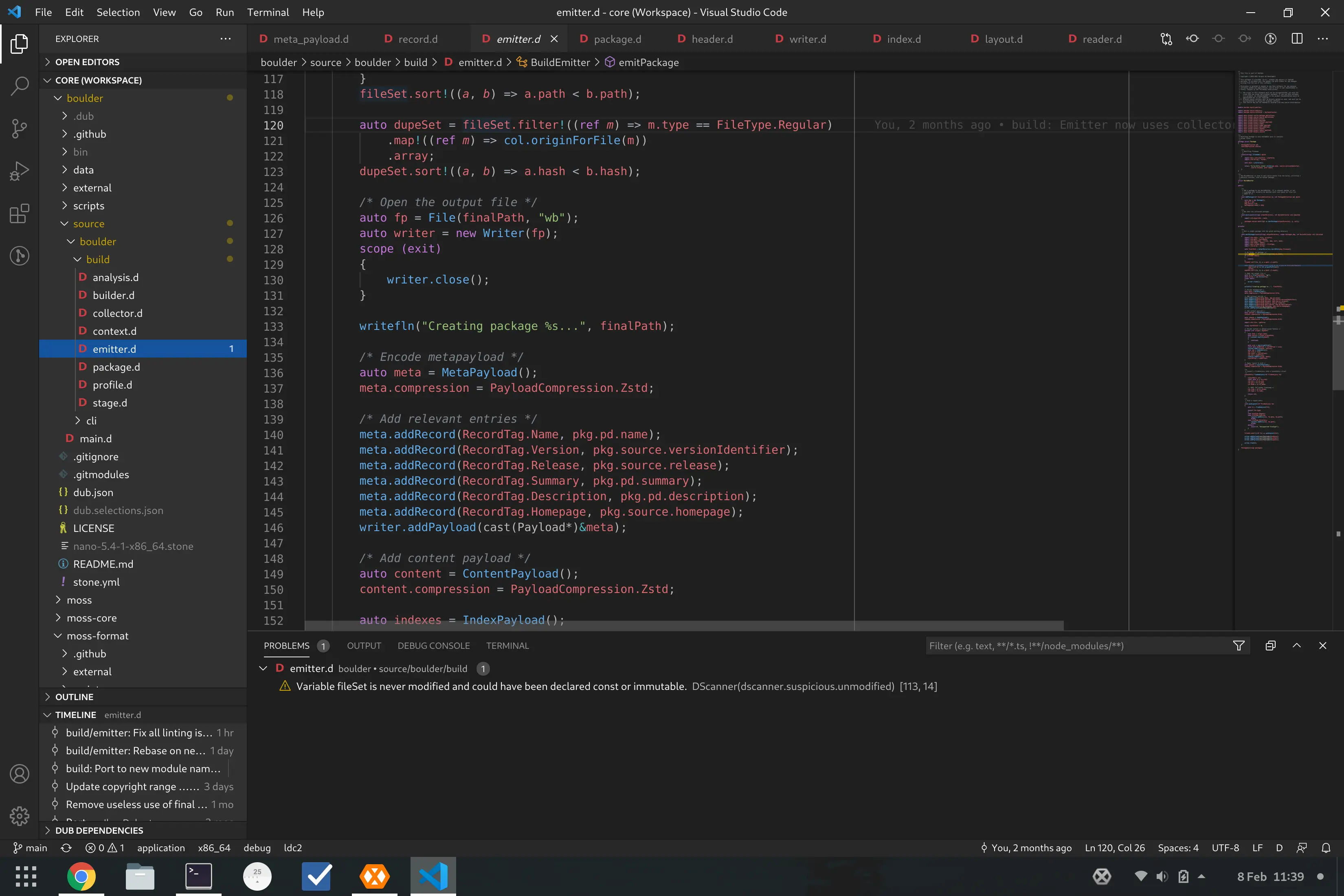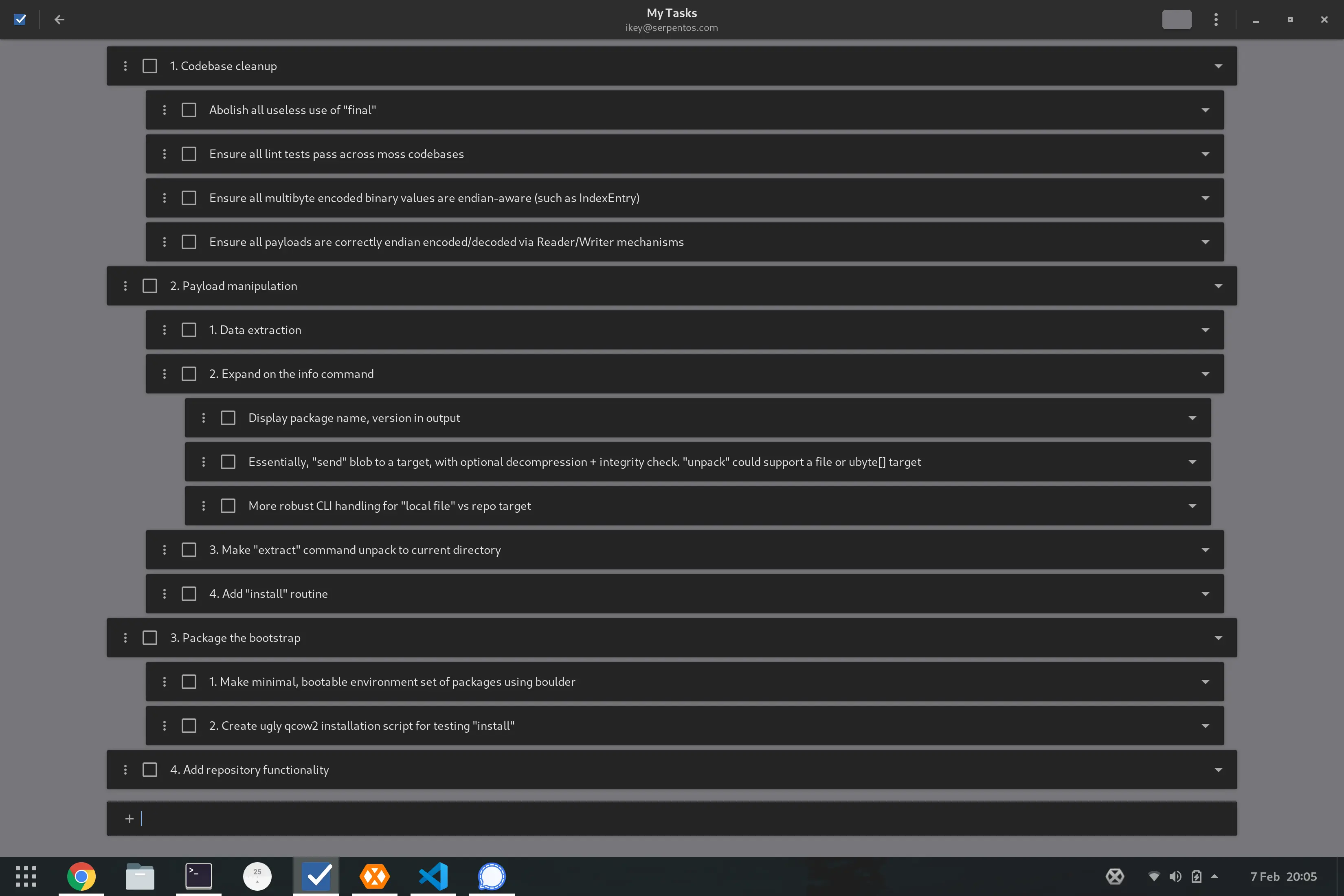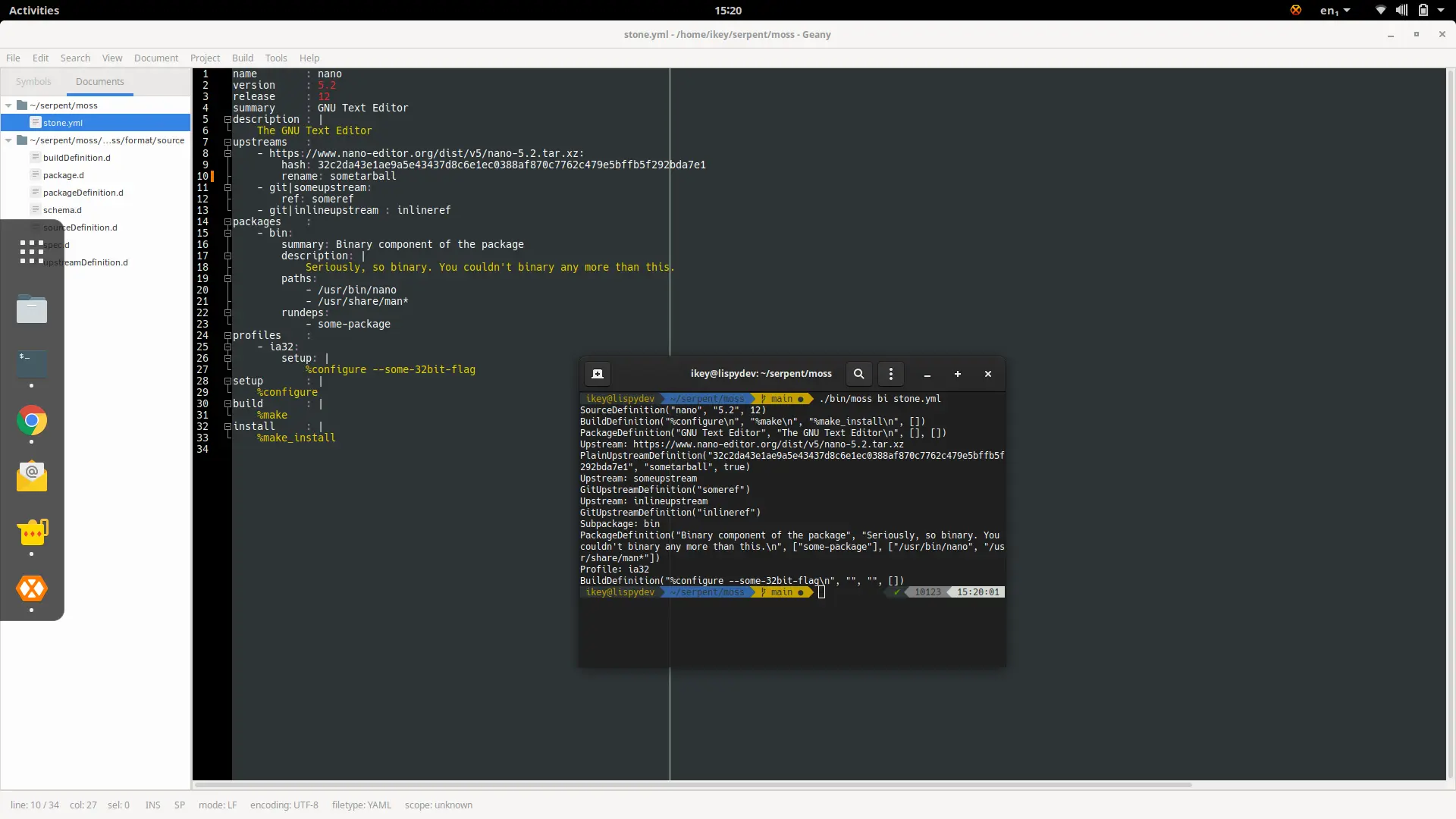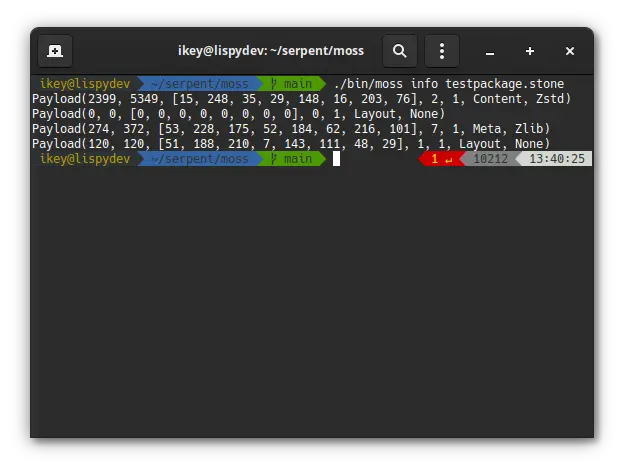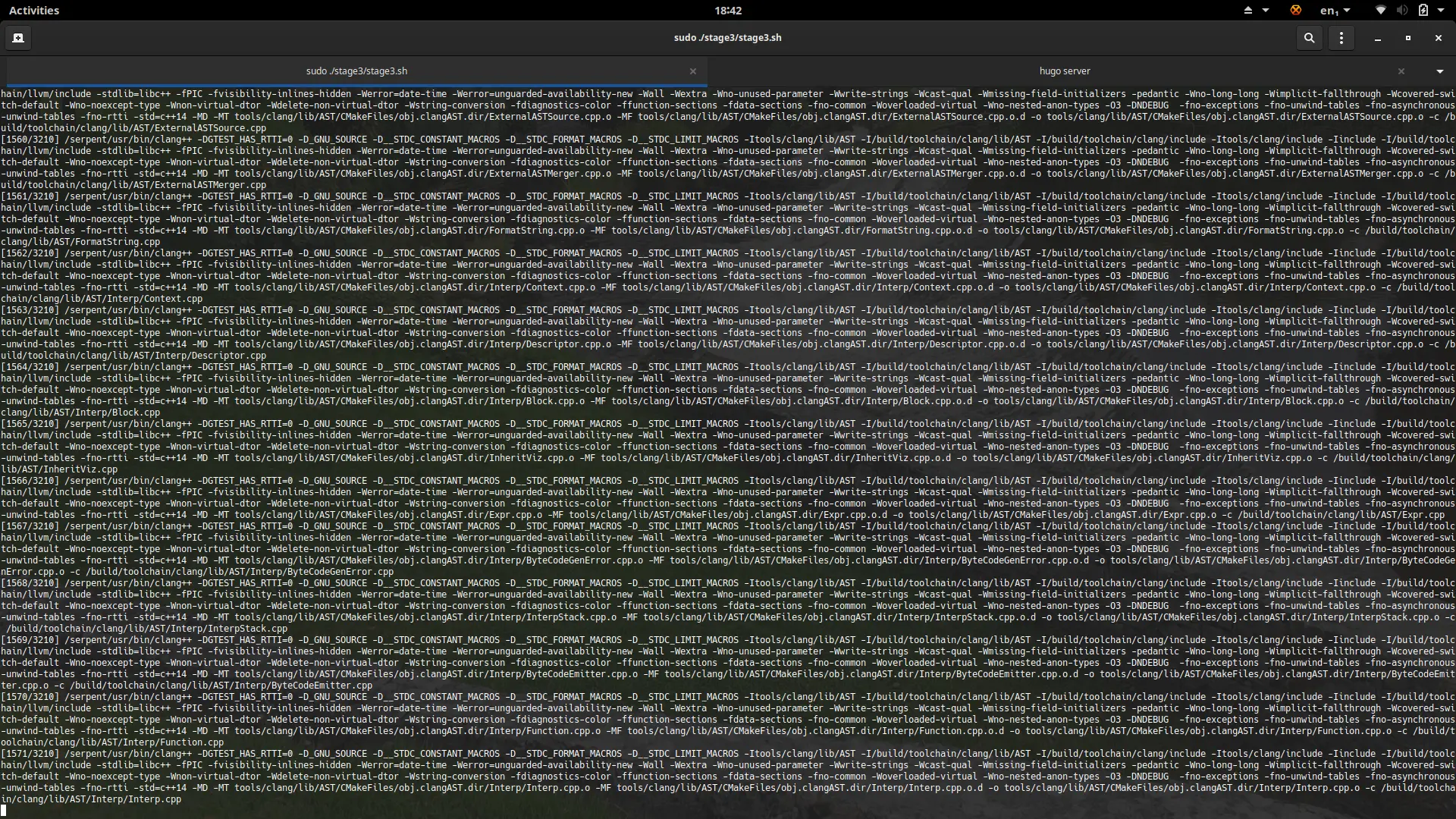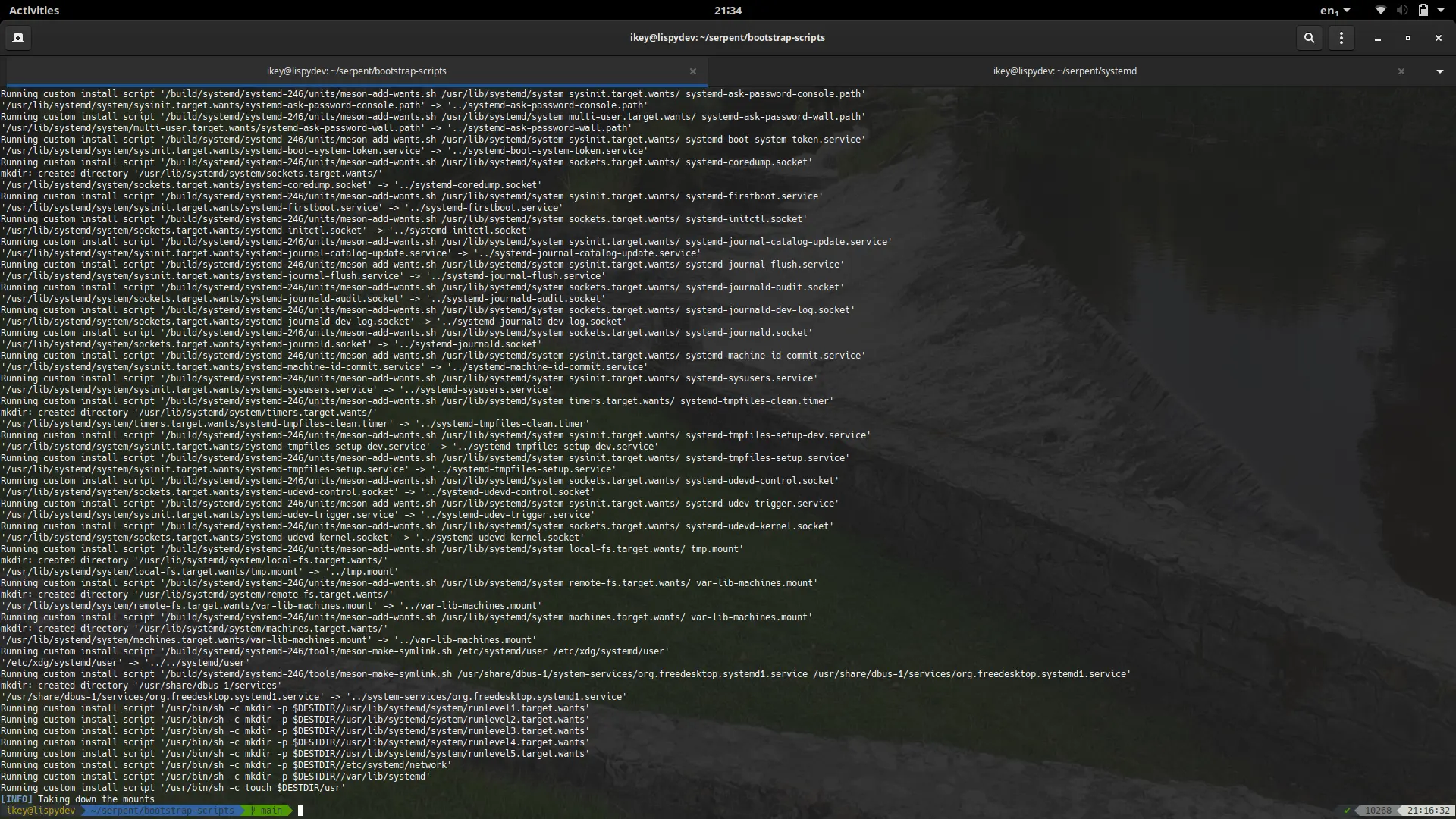Unlocking Moss
Wait, what? Another blog post? In the same WEEK? Yeah totally doing that now. So, this is just another devlog update but there have been some interesting updates that we'd like to share.
LDC present in the bootstrap
Thanks to some awesome work from Peter, we now have LDC (The LLVM D Lang Compiler) present in the stage3 bootstrap. To simplify the process we use the official binary release of LDC to bootstrap LDC for Serpent OS.
In turn, this has allowed us to get to a point where we can now build moss and
boulder within stage3. This is super important, as we'll use the stage3 chroot
and boulder to produce the binary packages that create stage4.
Some patching has taken place to prevent using ld.gold and instead use lld
to integrate with our toolchain decisions.
{{
Reworking the Payload implementation
Originally our prototype moss format only contained a ContentPayload for files, and
a MetaPayload for metadata, package information, etc. As a result, we opted for simple
structs, basic case handling and an iterable Reader implementation.
As the format expanded, we bolted deduplication in as a core feature. To achieve this,
we converted the ContentPayload into a "megablob", i.e. every unique file in the
package, one after the other, all compressed in one operation. We then store the offsets
and IDs of these files within an IndexPayload to allow splitting the "megablob" into
separate, unique assets. Consequently, we added a LayoutPayload which describes the
final file system layout of the package, referencing the unique ID (hash) of the asset
to install.
So, while the format grew into something we liked, the code supporting it became very limiting. After many internal debates and discussions, we're going to approach the format from a different angle on the code front.
It will no longer be necessary/possible to iterate payloads in sequence within a
moss archive, instead we'll preload the data (unparsed) and stick it aside when reading
the file, winding it to the ContentPayload segment if found. After initial loading of
the file is complete, the Reader API will support retrieval (and lazy unpacking ) of
a data segment. In turn this will allow code to "grab" the content, index and layout
payloads and use advanced APIs to cache assets, and apply them to disk in a single
blit operation.
In short, we've unlocked the path to installing moss packages while preserving the advanced features of the format. The same new APIs will permit introspection of the archives metadata, and of course, storing these records in a stateful system database.
Thank you for the unnecessary update
Oh you're quite welcome :P Hopefully now you can see our plan, and that we're on track to meet our not-28th target. Sure, some code needs throwing away, but all codebases are evolutionary. Our major hurdle has been solved (mentally) - now it's just time to implement it and let the good times roll.
